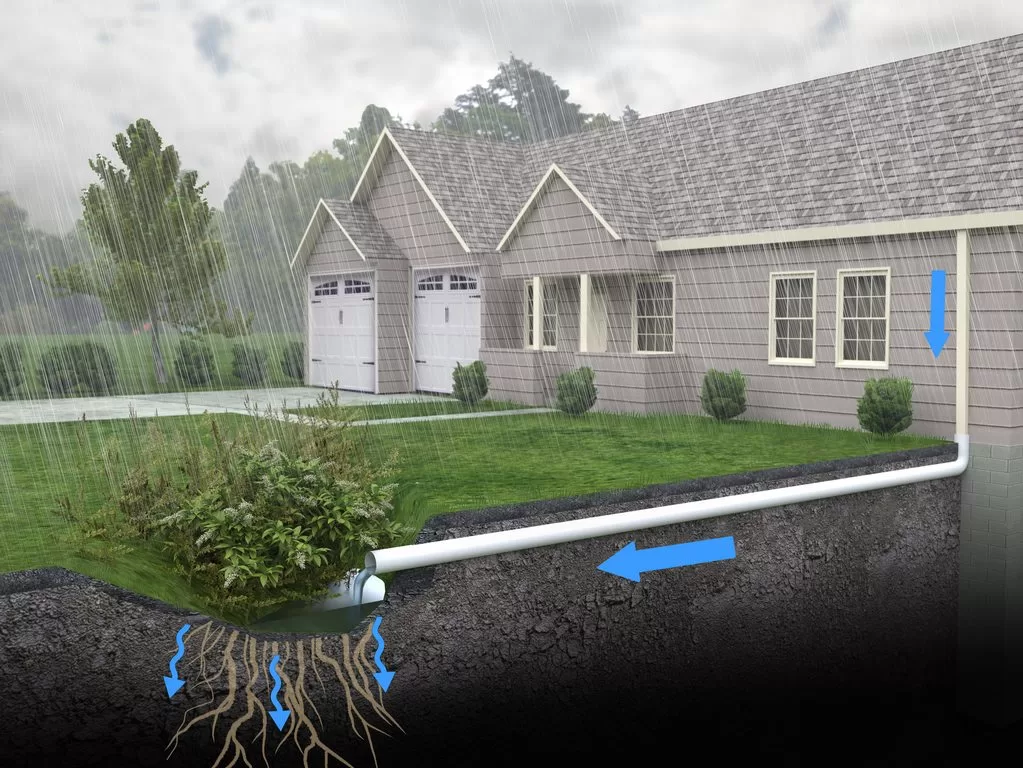Stormwater management means controlling the flow of stormwater runoff in residential areas. It involves collecting, storing, and draining stormwater safely and efficiently.
The primary purpose of stormwater management is to protect the local environment from potential harm caused by runoff. Stormwater runoff can carry pollutants such as fertilizers and oils that contaminate water sources or enter waterways.

Stormwater in residential areas can be caused by roof runoff, driveway runoff, or yard drainage. If the water isn’t managed correctly, it can cause flooding, soil erosion, and damage to the next site or property.
Stormwater management helps prevent these potential problems by providing an efficient way to collect and direct water away from structures and other areas that can be damaged.
Here are some of the benefits of effective stormwater management in residential areas:
During the rainy seasons, flooding can be a significant risk to residential areas. Floods can easily damage property due to the force with which the water is being moved. For example, there’s a risk of damage to lawns and gardens, fences falling and being washed away or water flooding the house.
Stormwater management helps reduce this risk by controlling water flow and directing it away from vulnerable structures. Instead of flowing freely on your garden or lawn, you can use gutters, drainage systems, and other flow traps to direct the water from your property to the town’s drainage system.
Stormwater runoff can cause soil erosion, damaging the property and local environment. For example, if you’ve planted your lawn or garden, there’s a very high risk of stormwater washing away the soil and exposing your plants and grass.
Moreover, if there’s a river or lake near you, the runoff can break the banks and cause erosion to the banks, making it difficult for people to access these waterways.
Stormwater management helps reduce this risk by using retention ponds and sediment traps. These systems capture and retain water, trapping sediments and preventing them from damaging the soil or flowing into local waterbodies.
Stormwater management systems help improve water quality by preventing pollutants from entering local waterways. All the residential areas’ water is collected and directed to filtration systems.
The systems collect rainwater, filtering out contaminants such as fertilizers and oil before they’re released into the environment.
In addition, stormwater retention ponds can provide an additional layer of protection by trapping harmful sediments and particles, further improving the water quality.
Stormwater runoff can damage roads, gutters, and other infrastructure due to force. For example, there have been several reported cases wherein stormwater runoff has caused deep gullies and potholes on roads, making it difficult to use the road.
Also, stormwater can easily find its way into your home areas, damaging your flooring and other furniture. Restoring your home after water damage is usually costly, and it’ll inconvenience you and your family as you’ll be forced to vacate the house for some time.
Water from driveways and roofs can easily damage a neighbor’s fence or garden. This risk can cause legal battles between neighbors as the affected neighbor can easily sue for damages.
Stormwater management helps prevent these legal battles by providing a safe way of collecting, storing, and draining water away from the property. The systems ensure that the water doesn’t affect your neighbor’s property, reducing the chances of legal disputes related to stormwater runoff.
Stormwater management systems also provide a great way to store water for domestic use. The runoff from roofs is collected in tanks and used for gardening, washing cars, or other activities around the house.
This helps reduce the cost of water bills and provides an additional source for domestic water needs.
Stormwater management can be done on your own, or you can hire a professional. If you choose to manage the stormwater yourself, here are some steps that you should take:
Consult a professional to see which method will work for you.
Stormwater management is an essential aspect of residential areas. It helps reduce legal battles between neighbors, improves water quality, and prevents the destruction of infrastructure.
If you want to manage stormwater on your property, install gutters and downspouts, drainage systems, and retention ponds. Doing so will ensure that the runoff from your property doesn’t affect the environment or your neighbor’s property.